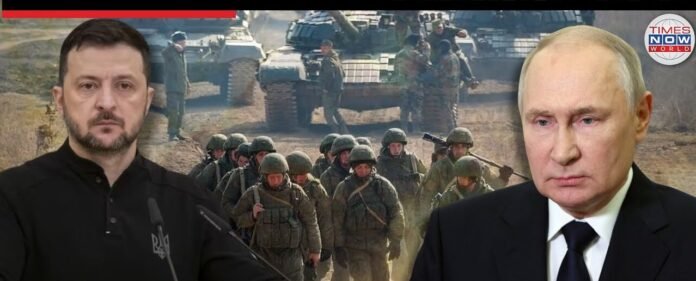Recently, Ukrainian forces made an unprecedented move by launching a significant incursion into Russia‘s Kursk region. This bold operation is a testament to Ukraine’s evolving military strategy as it seeks to assert its position in a protracted conflict with Russia. The offensive came amidst growing international concern over the intensifying hostilities. A subsequent missile strike allegedly involved Ukraine using ATACMS with possible Western backing, targeting Russia’s Belgorod region, further aggravating tensions.
Historically, the conflict between Ukraine and Russia has deep roots, dating back to the fall of the Soviet Union and exacerbated by Russia’s annexation of Crimea in 2014. This latest episode marks a significant shift in tactics, with Ukraine taking the offensive beyond its borders. The potential involvement of Western nations in supplying advanced missile systems like the ATACMS opens up diplomatic complexities as Russia has warned of retaliation.
The current dynamics are not just about territorial integrity or military might, but also a test of international alliances. Ukraine’s actions underscore a willingness to leverage every possible advantage, addressing both strategic military needs and sending a message to the Kremlin and the global community.
These developments add a new layer to the crisis, compelling stakeholders across the globe to reassess their strategies and responses. The prospect of a broader conflict looms larger than ever, pressuring diplomats and military strategists to find a viable path to de-escalation.
Perspectives
Perspective 1: From Russia’s perspective, Ukraine’s recent actions represent a clear escalation of an ongoing conflict into Russian territory, which they might interpret as a direct threat to national sovereignty. Russia’s narrative could emphasize the breach of international norms and express outrage over Western collaboration with Ukraine. The Kremlin might leverage this situation to galvanize domestic support by framing it as a defensive response to Western aggression via Ukrainian proxies.
Sources:
The Guardian
Newsweek
Perspective 2: On the other hand, Ukraine could argue that its actions are a necessary part of a broader strategic initiative designed to deter Russian aggression. The perspective here would highlight Ukraine’s enduring challenges of sovereignty violations, as seen with Crimea, and position these incursions as preemptive defence rather than pure aggression. Ukraine’s portrayal of the situation might include appeals for Western support, emphasizing the need for advanced defensive capabilities.
Sources:
The Guardian
Newsweek
Perspective 3: Internationally, observers might view this as a dangerous precedent which lowers the threshold for military conflicts spilling across borders. Many might be concerned about the potential for escalation leading to a wider war in Europe. This perspective would likely call for urgent diplomatic interventions to prevent a full-scale conflict, arguing for measures like peace talks or strengthened international sanctions as means to pressure both sides to the negotiation table.
Sources:
The Guardian
Newsweek
